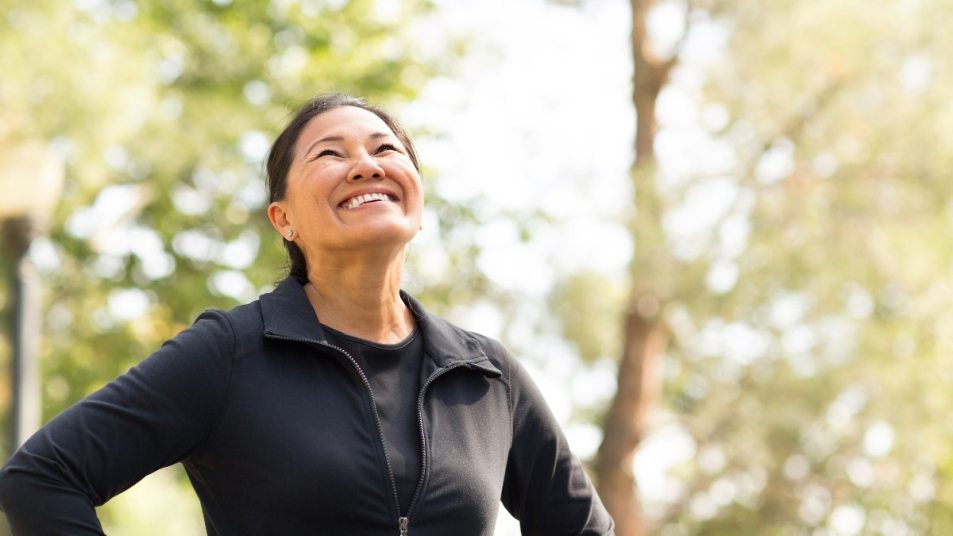August Health News: Successful Strategies for Long-Lasting Weight Loss (and Other Tips)
The health news that matters to you.

What’s going on in the world of health? To keep you up to speed, we’re sharing the latest health news for the month of August. In this month’s edition, discover simple ways to reduce bladder leaks, the reason pets are good for your brain, tested tricks for lasting weight loss, and how to reverse stress-induced gray hairs.
Telehealth is an easy Rx for bladder leaks.
Good news for women with overactive bladder (OAB): Interacting with physicians online improves symptoms, say researchers in Menopause. In their study, OAB patients filled out electronic questionnaires on their symptoms and treatment, then a clinician responded with suggestions, like limiting caffeine (a bladder irritant). After three months, subjects reported significant improvement in symptoms and a decrease in leaks, plus gave the program an 85 percent satisfaction rating. The researchers say virtual interactions are convenient, and the frequent engagement led to better compliance and medication use, which boosted results.
Pet ownership safeguards the brain.
That’s the word from University of Michigan Medical Center researchers. They had 1,369 subjects complete periodic tests on subtraction, counting, and word recall over a six-year period, and found that those who owned a pet experienced less decline in the ability to think quickly and clearly, make decisions and remember — and the decline was lowest in those who had their pet for at least five years. The study author says pets reduce blood pressure and increase physical activity, both of which benefit the brain.
The secret to lasting weight loss: self-talk.
Keeping pounds off after a diet may be easier than once thought, say scientists in Obesity. They analyzed data from more than 6,000 dieters who maintained a 50-plus pound weight loss for at least three years, and found that the most successful strategies involved “self-talk” during setbacks, meal planning, and tracking foods eaten. Study author Suzanne Phelan, PhD, says dieters learned to view overeating episodes as part of the journey, and that “talking back” to negative thoughts helped them get back on track.
Stress does turn hair gray — and it’s reversible.
Not all gray hair is permanent, say researchers at Columbia University. They literally split hairs of volunteers to look at pigment loss, and found that not only was there a direct link between stress and graying, there was a reversal of graying when stress was lifted. The authors say a woman who is mostly gray isn’t going to return to her natural hair color by eliminating stress. But for some, just like life’s stressors, gray hair will pass.
Use this TV trick for better sleep.
Contrary to popular advice, you don’t have to forgo TV before bed to get a good night’s sleep! In a study conducted at the University of Delaware and published in the Journal of Sleep Research, investigators used diary information and electroencephalography (tests that detect electrical activity in the brain) to capture volunteers’ bedtime, total sleep time, and sleep quality. Previous studies have found that exposure to the blue light of screens can disrupt sleep patterns, but this experiment suggests that watching a short show may be relaxing and help promote deeper sleep. However, watching for longer and using multiple devices can make sleep more difficult.
This article originally appeared in our print magazine, First For Women.
















